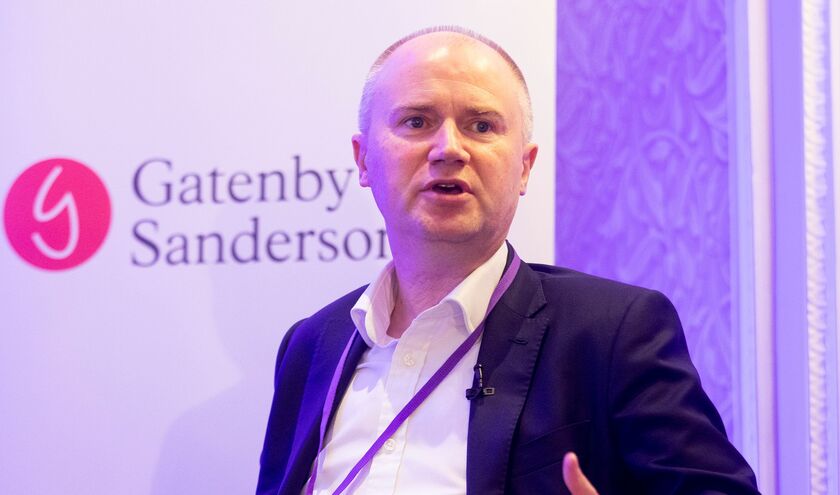Interview by Heather Jameson editor of The MJ
Tom Riordan is unusual for someone so senior in local government in that it is difficult to find someone with a bad word to say about him. His understated style, grateful demeanour and easy smile all contribute to make him a leader that is universally likeable.
All of which will be useful for the outgoing chief executive of Leeds City Council when he takes up his new role as second permanent secretary at the DHSC. Turning round the fortunes of a large chunk of the UK's public services will require all the charm, persuasion and collegiate leadership he can muster.
Speaking exclusively to Healthcare Management sister title, The MJ, shortly after his appointment was announced, he is excited about the challenge ahead.
In his typically modest style, Riordan claims he has always been ‘lucky' to have fallen on his feet, but his sentiments belie the respect and esteem he is held in across the city, local government and within the new Labour Government. He is a close ally of chancellor Rachel Reeves and has long been rumoured to be heading for a central government job.
When he started at Leeds 14 years ago – his first role inside a council, straight in at the top as chief executive – Riordan spoke about the importance of public services to his life. He opened up about his rocky early start – in and out of care up to the age of four years old due to the mental health problems facing his parents.
Public sector ethos
His public sector ethos is embedded in experience as much as commitment. A supportive teacher helped get him to Oxford University and the civil service fast track kick-started his career – a background that may serve him well when he joins the DHSC, given that mandarins are notoriously sceptical of outsiders.
Riordan says his early career at the Department of Environment, working internationally was a good grounding. ‘I've worked at international, national, regional and local level,' he says. ‘I used to joke I'd end up in a parish council, because I'm going in the opposite direction to the usual career trajectory.'
Stressing the importance of local knowledge in central government: ‘One of the things I'll be taking into the centre is an attempt to serve the whole country, and know the whole country,' he says.
He is confident that the new government understands the dire state of local government.
‘Obviously there are huge pressures not just in local government, but in other parts of the system,' he says. In Leeds, half the challenge is demand in social care – specifically children's services, with children coming into care, external placements and special education needs all driving up costs. He describes two parts to the solution: resources and functions.
‘Overall resource is an issue in local government. But the other issue is the job we have been asked to do…local government has effectively become the local welfare state. And it isn't resourced to do that.
‘That whole relationship between the centre and local government, welfare and those vulnerable people who need support, needs to be rethought. That can't happen straight away.
‘These are big, big issues where we've got to rethink who does what to support people, and what can the state afford. Local government is right at the heart of that big equation and question. We've got to get to a point where that becomes clearer and more stable again.'
No bigger challenge
It is ‘exactly the same set of issues' in health. ‘That's something I'm looking forward to untangle… it's going to take time. I think the fact there's a 10-year plan being developed is a really appropriate thing to do, because that's the type of timescale that we need to tackle these big issues.
‘But there's great talent in the NHS, in social care, and in local government. We've got to tap into that and rethink all this together. As Wes Streeting has said, it's a collective endeavour. The mission approach is a really interesting innovation and a really big opportunity for us to do that cross-Whitehall work, and also across sector work.'
That will also need to be mirrored at a local level. ‘I think the reason I've been appointed is because they want more knowledge and connection with local government.' He also offers an understanding of on-the-ground delivery that is sometimes lacking at the centre.
‘I'm really excited about going back into Whitehall. It's a bit of "if you can't beat them, join them", I guess.
‘I'm really respectful of the brainpower, the talent that's in Whitehall as well,' he says. ‘It'll be great to go in in a period where I think there is a genuine attempt to partner with local government and work with, rather than do things to them.'
There is, he suggests, ‘no bigger challenge' than trying to fix health and social care for the next decade. Accounting for 40% of public spending, it is imperative to get it right for the sake of the whole of the public sector.
Getting care and health right will impact on ‘so much else', he says, and equally it relies on so much else that sit outside its domain, often spread across local government. He is looking forward to ‘making those connections and finding a way of making progress'.
‘I wanted one last big job,' he adds. ‘But be careful what you wish for!'



